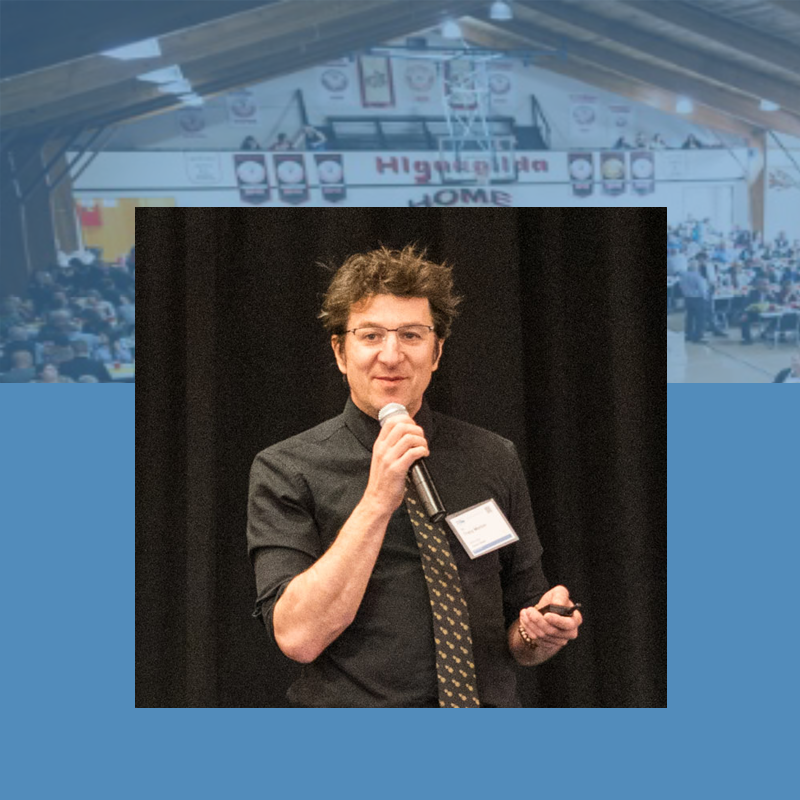
2024 Lightning Talk: Decolonizing Health Care at Xaada Gwaay Ngaaysdll Naay – Dr Tracy Morton, MSA President, Northern Presidents’ Council Co-chair
Increasing access to culturally safe care
Patients living on the remote island of Haida Gwaii face unique challenges in accessing medical care with many services a ferry or plane ride away.
These limitations – and with 50% of the population being Indigenous people – speak to the importance of the medical staff association (MSA) and partner work to provide culturally safe care on the island, where two hospitals serve about 5000 patients.
Foundation for change
Dr Tracy Morton, a long-term physician leader in the community, references the Truth and Reconciliation Commission of Canada: Calls to Action related to health – particularly numbers 18, 19, and 20 – for guiding action at national, organizational, and personal levels.
In 2018, signaling its commitment cultural safety, the MSA contributed to raising the first pole raised in Daajing Giids in modern era, in T’aaguu. More than 800 people celebrated, with attendance from the CEO of Northern Health, the Member of Parliament, and Members of the Legislative Assembly in BC.
The MSA and Northern Health worked with Facility Engagement to adapt funding guidelines for this purpose.
Organizational change and a hospital-community partnership
The MSA also focused on improving relationships with Indigenous partners through the creation of a hospital partnership agreement, to help guide how health care providers work with Haida community members.
Sessional funding for medical staff involvement was provided by the MSA through Facility Engagement, an initiative of the Specialist Services Committee and joint partnership of Doctors of BC and the Government of BC.
Partners committed to:
- Acknowledge that the activities of the Ngaaysdll Naay occur on the unceded traditional territory of the Haida peoples.
- Believe that fostering Haida language is aligned with the artistic values embodied in the totem pole: Unity, Welcoming, Healing, and Respect for traditional and modern ways of knowing.
- Believe that the institution has an obligation to answer the Truth & Reconciliation Commission’s Calls to Action 1, that being those services for First Nations be culturally sensitive and appropriate, and that we recognize and implement the health-care rights of Aboriginal people as identified in international law, constitutional law, and under the Treaties.
- Co-name key areas in the Ngaaysdll Naay with Haida names per the previous suggestions of SHIP, as identified in the health care curriculum.
- Co-rename the Haida Gwaii Hospital and Health Centre built 2016 was co-renamed with Indigenous partners to Xaada Gwaay Ngaaysdll Naay or “healing house” in Haida.
- Rename spaces in the hospital with Haida language for a more welcoming experience, and to help patients overcome barriers when in the space.
- Invite Elders to visit to the site to teach physicians and staff the Haida language, share a meal, and develop an Indigenous-based health care curriculum.
Personal-level change
Dr Morton acknowledges his personal journey first as a locum, then as a long-term physician in the community – and his adoption into the Gidins Clan of Skidegate in 2008; an experience that he attributes to his commitment to continue to reside in the community and serve the people of Haida Gwaii.
MORE RESOURCES
Peer-to-peer round table on cultural safety
Doctors of BC Guide for Respectful Indigenous Engagement to support divisions, MSAs, and physician members in their work with First Nations, Métis, and Inuit.
![]()
 |
 |
 |

